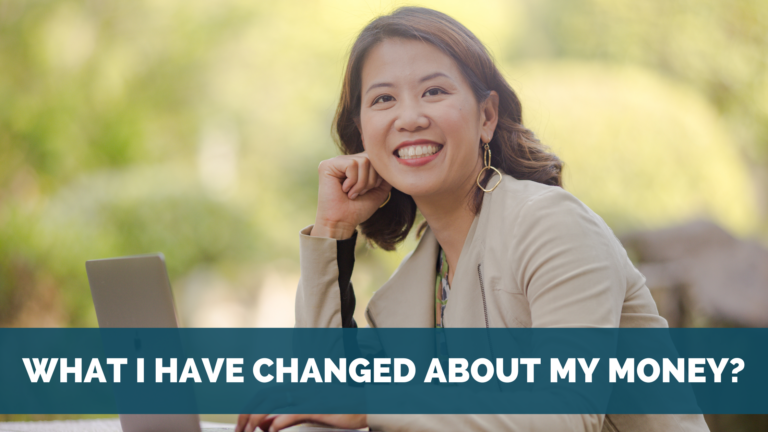|
Are you on track? 8 Key Financial Ratios for High Earners in the Bay Area
|

Now, I’m someone who has always taken pride in my financial savviness, and if you had asked me six years ago how well I thought I was doing in managing my money, I would have said – “Excellent! I know what I’m doing!”
I took my job as our family’s CFO seriously, and I put in many hours each month to manage our investments and plan for our financial future. So when I started my studies in preparation to become a Certified Financial Planner, I assumed that at least for my situation – mid-career, tech, W2-earner, married with kids – I had already figured out everything there was to know.
That was my overconfidence talking.
When I began working with other experienced financial advisors and studying financial planning with the rigor of a professional, I realized that there was a lot that I had missed. The thing about taking the DIY approach to personal finance is that even if you’re willing to put in the energy to learn, you’ll inevitably have blind spots.
I’ve long assumed that the only thing a long-term investor can do during market downturns is grit your teeth, try not to look, and hang on for dear life until it’s over. While it’s still true that risk is the price that investors must pay to play, I’ve also learned that there are quite a few other methods to manage risk beyond “just put more into bonds. ” I’ve implemented some of these strategies into my portfolio because for us, the worst-case scenario isn’t missing out on return, it’s not being able to afford to keep doing what we’re doing.
This leads to my second big a-ha. As a self-taught investor, I had been raised in the school of “passive index funds for everything, all the time.” I still believe that it’s often hard to beat the low-fee effectiveness of index funds, but I now see that there is a role for active management. Especially in times of market stress. Just as an example – in today’s rising interest rate environment, it may make sense to use a bond fund where the manager has the discretion to adjust which type of bonds to hold to manage interest rate risk. While index funds still comprise a significant portion of my portfolio, I use active professional investment managers in asset classes where it’s historically proven more profitable to do so.
I’m also become more thoughtful about how taxes impact my investment decisions. This means maximizing tax efficiency around the investments I hold and where I hold it. But it also means not letting the “tax tail wag the dog” and making the mistake of holding onto positions for far too long just because I didn’t want to pay capital gains taxes.
Lastly and perhaps most importantly, I’ve changed how I invest to better align our money with our values. I’ve learned that this not only feels good, but the data indicates that investing in ESG-focused companies may also be more profitable.
Like many people facing an uncertain future, I built up a large cash balance to prepare for my departure from corporate life. This cash was meant to cover our expenses for 5+ years as well as fund a future yet-to-be-defined home remodel. While the decision of how much cash to hold is very personal, I have found that the tendency for many people – especially women – is to hold too much cash and lose out on potential investment returns. Although it’s true that money invested is best left for the long-term, often we’re just not sure when we’ll need that money.
I have since learned that there are reasonable ways to get liquidity from invested money – examples include pulling from dividends, selling securities as part of a rebalance, or the prudent use of debt. That – plus the growing confidence that whatever life may throw at us, Lisa and I are adept at adjusting – gave me the confidence to invest the majority of our cash. Every person’s situation and risk tolerance is different, but as part of managing our wealth, we all need to ask: How much cash do I truly need?
I remember sitting down with my CPA a couple of years ago after being shocked by my tax bill and asking: “Is there anything more I can be doing to optimize for taxes?” He told me that as a W-2 earner with a significant amount of equity compensation, I was SOL. The thing about effective tax planning is that your planner needs to understand your goals and your full financial situation. I’ve now developed a plan for my clients on How To Use Equity Based Compensation to Fuel Your Financial Independence. You need to take a long-term view, and many tax strategies take years to implement. I met with my CPA for an hour appointment once a year, so it was unreasonable to expect him to work magic.
As a newly self-employed person, my tax situation is quite different. Now I’m focused on strategies like maximizing deductions, utilizing a solo 401K and Roth, and taking advantage of these years to do Roth conversions and harvest capital gains.
But if I could go back to my days as a tech employee knowing what I know now, I would have been a lot more proactive about managing my tax bill. Some strategies I could have looked at: Finding ways to defer taxable income, better managing capital gains from my RSUs, and setting up a donor-advised fund to optimize deductions.
Since I was the primary earner, we opted to buy a term life insurance policy on myself when our daughter was born. But I’ve seen now that it can also make sense to have life insurance on a non-working spouse. If the worst should happen, a significant financial cushion can be a relief. Also, life insurance with living benefits can double as coverage for long-term care.
Disability is one of the most overlooked risks, and I was no different. I’ve since run the numbers and we feel comfortable self-insuring, but most people should at least assess their coverage needs. I also bought personal liability coverage – as a landlord and mother of two children who will eventually become teenagers doing god-knows-what – the relatively low price of an umbrella policy felt worthwhile to cover a tail risk.
As for estate planning, Lisa and I had utilized the legal services benefit offered by her employer to get our documents in place. But that was pre-children and very basic. We’re hired an estate lawyer to revisit our trust and documents to update it properly.

Managing your finances successfully requires consistent effort, ongoing planning, and a touch of paranoia. I thought I was doing a great job as a DIYer, but it’s difficult when you’re juggling daily demands, changing life circumstances, a fickle tax code, and your own biases.
And I haven’t even talked about the challenges of handling the emotional side of money – during 2020’s pandemic-induced market crash, I threw everything I believed about markets to the wind and sold out a chunk of my equity position. Thankfully, I regained my marbles and bought back in a week later with no harm done, but it just goes to show that even the most devoted long-term investor cannot escape emotions when it’s your own hard-earned life savings at risk.
It’s not easy to go at it alone, even when you are willing to put in the energy. I jotted down a few learnings about When to Hire a Financial Advisor and How to Choose the Right One. Perhaps my biggest lesson over these past few years is that all the financial knowledge in the world is of no use if you can’t look at your money objectively and consider all the angles. And when it’s your money, it’s really hard to do.
![]()
![]()
![]() Just as doctors need their own doctors and therapists need their own therapists, I have since hired a financial advisor for my own family.
Just as doctors need their own doctors and therapists need their own therapists, I have since hired a financial advisor for my own family.
If you’ve been going at your finances alone and would like some help, you can schedule a free consultation here. It can be a great relief to offload the burden of being your family’s CFO to a professional who can offer objective guidance.
Location
For our clients’ convenience, we conduct meetings virtually. While our home base is in San Francisco and the Bay Area, we proudly serve households across the U.S. and internationally.
1999 Harrison St
Suite 1800
Oakland, CA 94612
415-295-6206
Investment advisory services offered through Equita Financial Network, Inc. an Investment Adviser with the U.S. Securities and Exchange Commission. Registration does not imply a certain level of skill or training. Equita Financial Network also markets investment advisory services under the name, Modern Family Finance, LLC. The presence of this website on the Internet shall not be directly or indirectly interpreted as a solicitation of investment advisory services to persons of another jurisdiction unless otherwise permitted by statute. Follow-up or individualized responses to consumers in a particular state in the rendering of personalized investment advice for compensation shall not be made without our first complying with jurisdiction requirements or pursuant an applicable state exemption.
All written content on this site is for information purposes only. Material presented is believed to be from reliable sources and no representations are made by our firm as to another parties’ informational accuracy or completeness. All information or ideas provided should be discussed in detail with an advisor, accountant or legal counsel prior to implementation.
Securities investing involves risks, including the potential for loss of principal. There is no guarantee that any investment plan or strategy will be successful.
Copyright © Modern Family Finance 2023. All Rights Reserved.